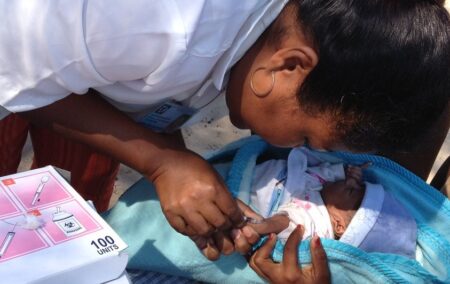South Africa’s long-practised Bacillus Calmette–Guérin (BCG) vaccination programme could mean it will be far less severely affected than countries like the USA, Italy, the Netherlands and Spain where BCG vaccinations are not mandatory.
This emerges from research by biomedical scientists at the New York Institute of Technology (NYIT) suggesting a possible link between the century-old BCG vaccine – mainly against TB – and mortality rates for Covid-19. Their paper still has to be peer reviewed.
South Africa, like Japan and South Korea, have had mandatory BCG vaccination for decades.
South Africa is among the countries with a strong vaccination protocol for BCG and has been administering the BCG vaccine since 1973. BCG is used in countries with a high prevalence of TB to prevent childhood tuberculous, meningitis and miliary disease (a form of TB).
The World Health Organisation (WHO) estimates that BCG coverage in South Africa has been at between 80% and 90% in most years since 1973.
The authors of the NYIT paper found that countries without universal policies of BCG vaccination (Italy, Netherlands, USA) have been more severely affected compared to countries with universal and long-standing BCG policies.
Iran which started a universal BCG policy in 1984 had high mortality, consistent with the idea that BCG protects the vaccinated elderly population. ‘The combination of reduced morbidity and mortality makes BCG vaccination a potential new tool in the fight against Covid-19.’
The NYIT study further says: ‘Consistent with a role of BCG in slowing [the] spread of Covid-19, middle-high and high-income countries that never had a universal BCG policy (5 countries) had about 4 times the number of cases per million inhabitants.’
The WHO advises caution, as clinical trials will need to establish any positive Covid-19 link. A vaccine against Covid-19 could take another 18 months to develop.

